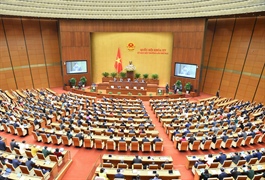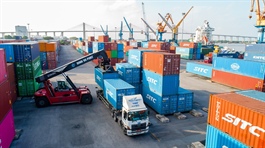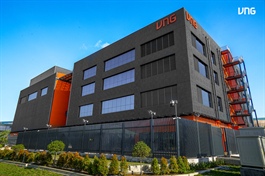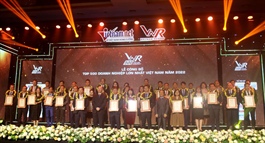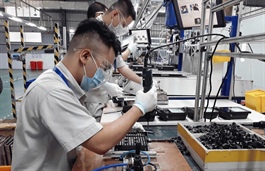All systems go for further MPI achievements in 2023
All systems go for further MPI achievements in 2023
With the formulation of a master plan for the country and each economic region, as well as determining the key focus to develop the country over the next few decades, the Ministry of Planning and Investment is making great contributions to national development.

Earlier in January, the National Assembly held an extraordinary session to consider the national master plan for 2021-2030 with a vision to 2050, which has been submitted by the government and drafted by the Ministry of Planning and Investment (MPI) to oversee the development goals of the country for the next few decades.
Deputy Minister of Planning and Investment Tran Quoc Phuong said that the national master plan is the framework for the development of the country’s infrastructure, and includes transportation, urban areas, energy, digital efforts, culture, and societal issues.
“We have pointed out and created an efficient and sustainable spatial planning model for national development, forming dynamic economic zones, economic centres, strategic cities, synchronous infrastructure networks, connecting regions, and connecting between urban and rural areas,” Phuong said.
“We are creating conditions for high economic growth, aiming towards the goal of becoming a developing high middle-income country with modern industry by 2030 and a developed, high-income, just, democratic, and civilised society by 2050,” he added.
The master plan identifies and focuses on developing a number of fundamental industries to meet the needs of the economy’s basic means of production, including high-tech, digital, and green industries, associated with the circular economy model.
“The arrangement of industrial space will also develop urban and service centres to form economic corridors and dynamic zones,” the MPI deputy minister said. “This includes expanding industrial development space to the west of the North-South Expressway’s eastern cluster and the midland region, and to reduce pressure on land use in the Mekong Delta and mitigate the impact of climate change.”
For service industries, the MPI orientates to build regional and world-class commercial and financial centres in big cities, associated with the development of dynamic areas and economic corridors.
Of this, the MPI sees two economic corridors covering the country, including the eastern economic corridor linking the North-South Expressway to the east and a section of National Highway 1A from Lang Son to Ca Mau; and the western economic corridor linked with the Ho Chi Minh Highway and North-South Expressway to the west.
Dynamic areas are raised by the MPI on the basis of existing key economic regions, areas with the most favourable locations, and with gateways to international airports and seaports in combination with transshipment, and with the potential for science, technology, and innovation.
Besides the national master plan, the MPI is completing and submitting for approval five regional plans, 42 provincial plans, and more than 30 sectoral master plans.
“Although the requirement must be fast, the quality of planning must always be put first and must be considered as an opportunity to organise and rearrange the development space, in order to promote the potential and take advantage of the strengths of each region, each industry, and field, creating new driving forces for the country,” emphasised Deputy Minister Phuong.
The national master plan will be the foundation for the country to remain high GDP growth at 7 per cent until 2050, while GDP per capita will reach about $7,500 by 2030, and $27,000-32,000 by 2050. The proportion of urban population will be over 50 per cent by 2030 and 70-80 per cent by 2050.
There will be about 5,000km of expressways nationwide by 2030 and 9,000km by 2050, and high-speed rail will be completed.
In addition to the regular tasks of providing advice for socioeconomic plans and master plans of the country and every locality, the MPI is often assigned special tasks like building billion-dollar socioeconomic recovery and development programmes to tackle the impact of pandemic.
“The bailouts built by the MPI has enabled opportunities to arise from the pandemic and drive socioeconomic development,” said Dang Xuan Phong, Secretary of the northern province of Lao Cai’s Party Committee.
Specifically, the main recovery programme provided various solutions in all areas to ensure social security and employment support such as providing loans for job creation and retention; exemption and reduction of taxes, fees, and charges; infrastructural development investment; institutional and administrative reform; and general improvement of the business investment environment.
“Most of these measures provided by the MPI have generated positive impacts on socioeconomic development,” said Tran Tue Hien, Chairwoman of the southern province of Binh Phuoc’s People’s Committee. “The MPI deserves the trust of the government and expectations of localities, and is a solid support for domestic and foreign business as well as the investor community.”







